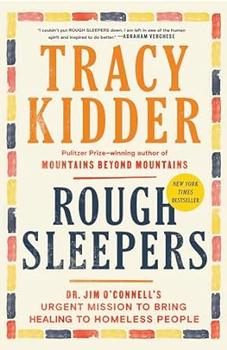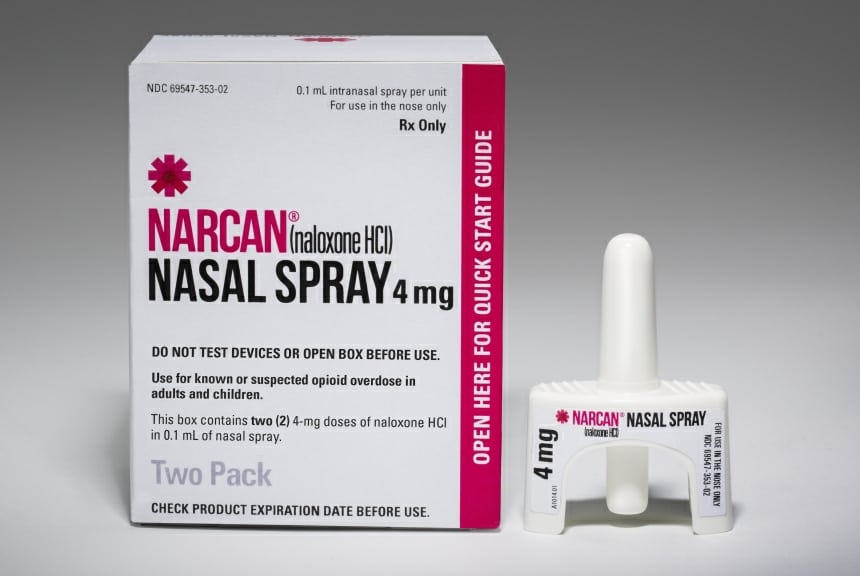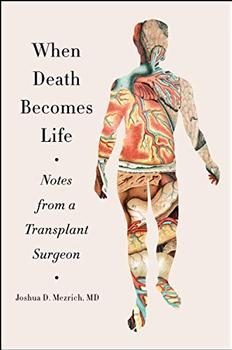Summary | Excerpt | Discuss | Reviews | Beyond the book | Read-Alikes | Genres & Themes | Author Bio

Dr. Jim O'Connell's urgent mission to bring healing to homeless people
by Tracy KidderThe powerful story of an inspiring doctor who made a difference, by helping to create a program to care for Boston's homeless community—by the Pulitzer Prize–winning, New York Times bestselling author of Mountains Beyond Mountains
Tracy Kidder has been described by The Baltimore Sun as a "master of the nonfiction narrative." In Rough Sleepers, Kidder shows how one person can make a difference, as he tells the story of Dr. Jim O'Connell, a gifted man who invented ways to create a community of care for a city's unhoused population, including those who sleep on the streets—the "rough sleepers."
When Jim O'Connell graduated from Harvard Medical School and was nearing the end of his residency at Massachusetts General Hospital, the chief of medicine made a proposal: Would he defer a prestigious fellowship and spend a year helping to create an organization to bring health care to homeless citizens? Jim took the job because he felt he couldn't refuse. But that year turned into his life's calling. Tracy Kidder spent five years following Dr. O'Connell and his colleagues as they served their thousands of homeless patients. In this illuminating book we travel with O'Connell as he navigates the city, offering medical care, socks, soup, empathy, humor, and friendship to some of the city's most endangered citizens. He emphasizes a style of medicine in which patients come first, joined with their providers in what he calls "a system of friends."
Much as he did with Paul Farmer in Mountains Beyond Mountains, Kidder explores how a small but dedicated group of people have changed countless lives by facing one of American society's difficult problems instead of looking away.
Kidder's portrait of O'Connell is vivid, painting his subject as a caring individual who is both frustrated and fascinated by his profession. He chronicles the doctor's journey from his first enthusiastic but naïve efforts to his becoming savvy about getting care to his patients, even if he has to use unconventional methods to do so (he decides, for example, to leave some patients' medications with a bartender who agreed to make them take their pills before giving them a drink). It's a finely-tuned portrayal that avoids the temptation of casting the physician as overly saintly or heroic; his flaws are evident, as are his strengths, and as a result, readers feel they know O'Connell well by the book's end...continued
Full Review
 (791 words)
(791 words)
(Reviewed by Kim Kovacs).
 In Tracy Kidder's Rough Sleepers, the drug naloxone, commonly known by the brand name Narcan, saves the lives of multiple people in the throes of an overdose from opioids like fentanyl and oxycodone.
In Tracy Kidder's Rough Sleepers, the drug naloxone, commonly known by the brand name Narcan, saves the lives of multiple people in the throes of an overdose from opioids like fentanyl and oxycodone.
A relative of morphine, naloxone was first patented in 1961 by American scientists looking for a medication to treat constipation resulting from opioid use. They discovered that the drug could be used to reverse opioid overdoses, and the FDA approved it for such treatment in 1971. As heroin abuse and subsequent overdose deaths increased alarmingly in the 1990s, naloxone became a vital part of emergency medical kits. A nasal spray delivery system was devised in 2012 and given FDA approval in 2015.
Opioids such as morphine, oxycodone and ...

If you liked Rough Sleepers, try these:

by Carol Mithers
Published 2025
Rethinking Rescue boldly confronts two of the biggest challenges of our time — poverty and homelessness — in asking the question: Who deserves the love of a pet?

by Joshua D. Mezrich
Published 2020
A gifted surgeon illuminates one of the most profound, awe-inspiring, and deeply affecting achievements of modern day medicine - the movement of organs between bodies - in this exceptional work of death and life.